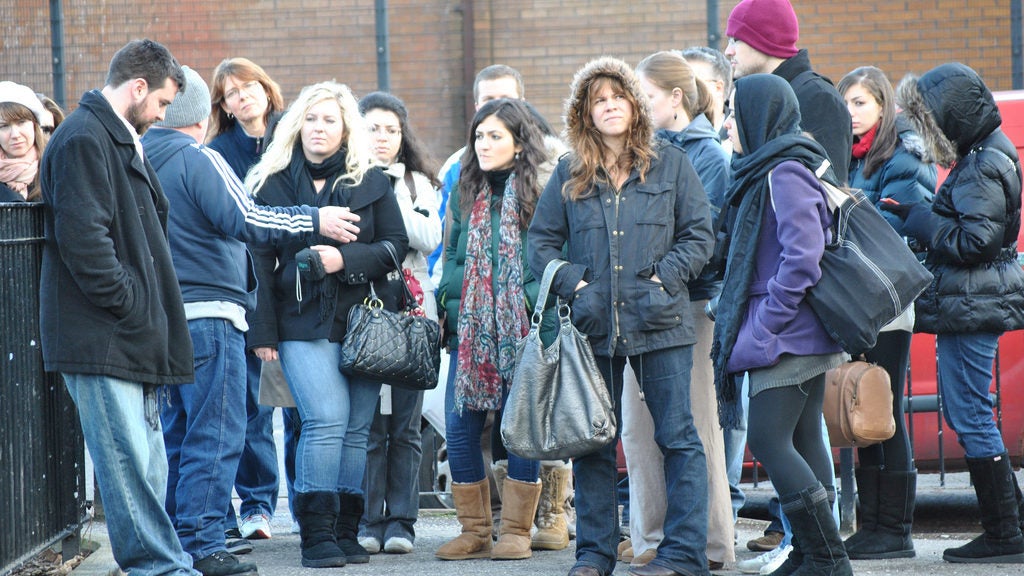Students Participate in Alernative Spring Break Trips

While many students head to exotic destinations during spring break to relax and take a break from the academic pressures of college life, a select group of students from Georgetown University School of Foreign Service in Qatar (SFS-Qatar) took this time to learn outside the classroom while volunteering their services.
Through SFS-Qatar’s Service Learning Program (SLP) a group of 16 students traveled to Bangladesh as part of an effort to teach students about economic development and to provide assistance. Meanwhile, Zones of Conflict, Zones of Peace program (ZCZP) took 20 students to Northern Ireland to learn about ethnic conflict and peace building strategies.
This year’s SLP courses focused on teaching students about different economic development models and microfinance. Uday Rosario, Community Engagement Coordinator explains that the 30 hours of coursework is part of the SLP’s skill building initiatives. “In order to facilitate the ability of our students to give back to society, we have to provide them with the skills to ensure that their contributions would be valuable,” he said. “This places a specific emphasis on a bottom-up approach of economic development. The students saw how people have organized in order to life themselves out of poverty,” added Rosario.
This spring break, SLP students headed to Bangladesh not only to learn about microfinance, but to assist in building homes. In addition to meeting with representatives from banks, students spent time working with residents of Sathkira, a rural village in the south west of the country, and working with Habitat for Humanity helping build homes.
“The trip offered the perfect balance of learning about economic development and community engagement,” said Doaa Osman SFS ’11. “Our on-the-field work, and memories with the beautiful people of Satkhira enabled us to delve deeper in to a field that is sometimes too theoretical.”
Likewise, ZCZP students take courses on conflict management and resolution. The courses are followed by a trip to a conflict site that allows students the opportunity to add practical experience to their theoretical understandings and knowledge about complex problems throughout the world.
The brainchild of SFS-Q Deans Brendan Hill and John Crist, ZCZP provides students with the basic concepts of conflict resolution and teaches them the role that history and culture plays in igniting battles. “ZCZP is meant to be a way for our students to apply theories of conflict management to specific examples of conflict at various stages of their development,” said Hill, SFS-Qatar associate dean of student affairs. “Students then apply these various ideas in specific case-studies.”
While in Northern Ireland, students met with representatives from government, academia, and non-governmental organizations in order to gain a multidimensional perspective of the conflict and see how it affects the different parties involved.
“As a student who has participated in the ZCZP program for three years, the Northern Ireland trip made me realize that the worst of all conflicts is the conflict that is deafened by the sound of complete silence; the lack of dialogue between the conflicting parties,” said Nada Soudy SFS ’11. “I hope that future ZCZP themes will continue to tackle and shed light on the ambiguities and complexities that characterize so many world conflicts.”
Last year during spring break, the SLP took a group of students to China to help rebuild homes damaged by the 2008 earthquake and learn about disaster management strategies. The ZCZP traveled to Cyprus where students learned about territorial conflict and conflict management.